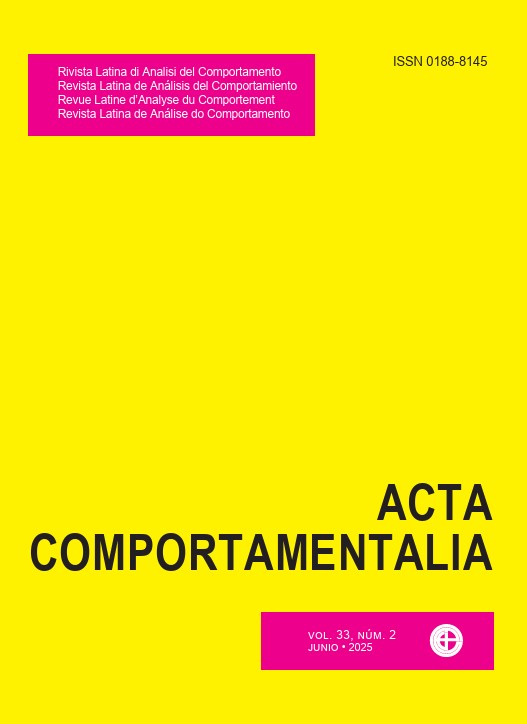An Analysis of B. F. Skinner’s Mentions of the Feminine Gender
DOI:
https://doi.org/10.32870/ac.v33i2.88583Keywords:
Skinner, women, gender, behavior analysis, stereotypes, Skinner, women, gender, behavior analysis, stereotypesAbstract
Identifying gender inequalities, stereotypes, and biases has been the subject of investigation in different studies in Behavior Analysis. Considering that the Portuguese translations of books by B. F. Skinner, the leading proponent of this theory, are used as a reference for the training of behavior analysts in Brazil, the objective of this research was to evaluate Skinner’s mentions of women in these translations, in order to verify the presence of gender biases and stereotypes. To this end, a conceptual study was conducted using seven books by Skinner translated into Portuguese. Excerpts from the books that mentioned the term woman and related terms were identified and categorized. The results were divided into categories explaining Skinner’s statements that (1) presented gender biases, (2) were antithetical to sexist stereotypes about women, and (3) did not present gender biases. One hundred thirty excerpts were identified with terms referring to women in the books consulted. Among these excerpts, 51,1% are concerned with gender biases. The main gender stereotypes identified were the representation of women as
mothers; appearance and beauty as defining characteristics of the value attributed to women; female objectification based on an ideal of purity and subservience; the well-being of the family and affective relationships as women’s attributions; and cognitive inferiority of women. However, we also found Skinnerian statements about women that did not subscribe to gender biases (42,0%) or were even explicitly against them (6,9%). These excerpts could be examples of academic writing more compatible with deconstructing social myths about women. Although we cannot scrutinize the variables that controlled Skinner’s verbal behavior when mentioning women, it is possible to discuss the implications of such mentions since the use of
gender stereotypes can contribute to the maintenance of an essentialist conception of women.
Downloads
Downloads
Published
How to Cite
Issue
Section
License

<a rel="license" href="http://creativecommons.org/licenses/by-nc-sa/4.0/"><img alt="Licencia de Creative Commons" style="border-width:0" src="https://i.creativecommons.org/l/by-nc-sa/4.0/88x31.png" /></a><br />Este obra está bajo una <a rel="license" href="http://creativecommons.org/licenses/by-nc-sa/4.0/">licencia de Creative Commons Reconocimiento-NoComercial-CompartirIgual 4.0 Internacional</a>.






